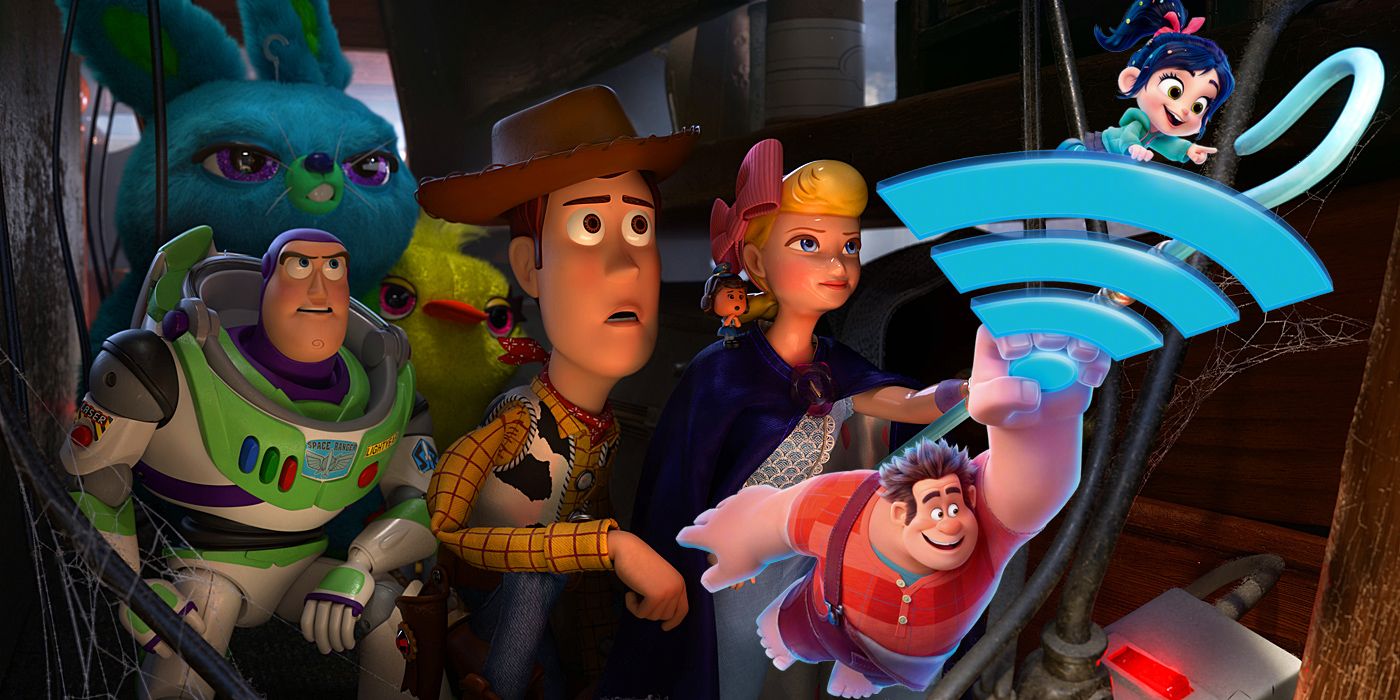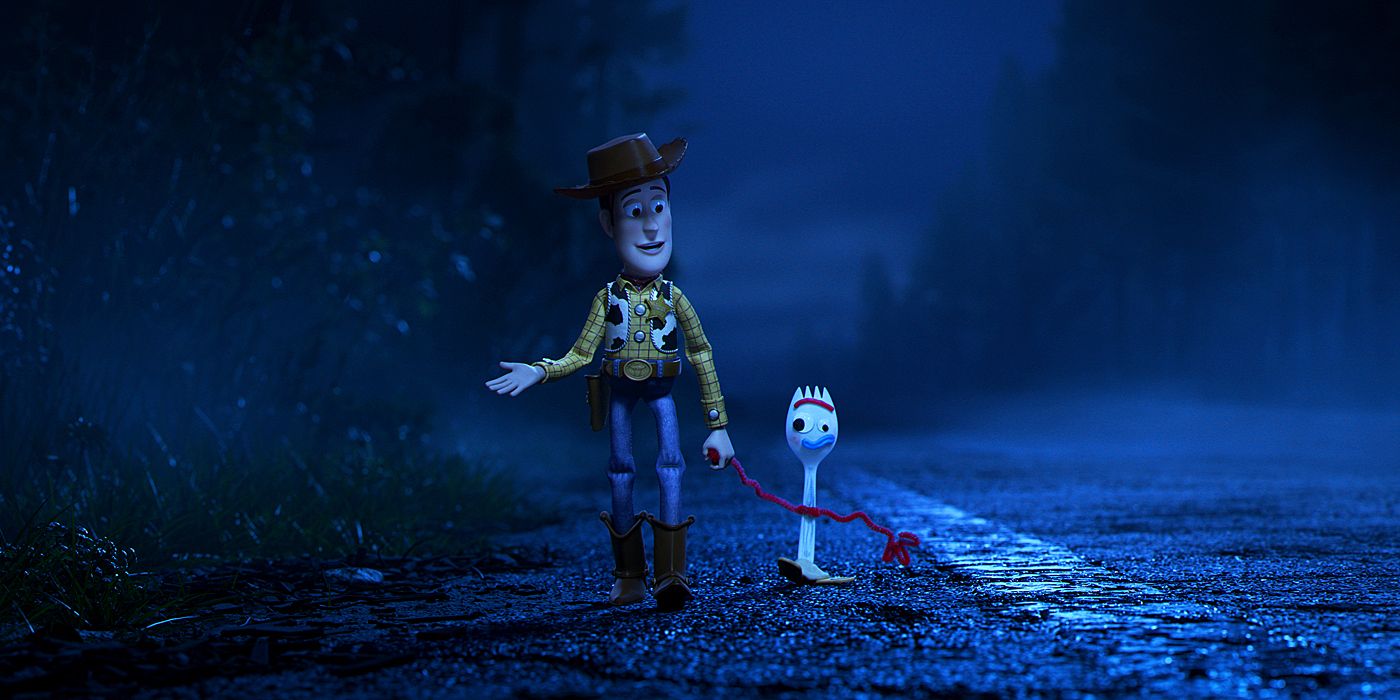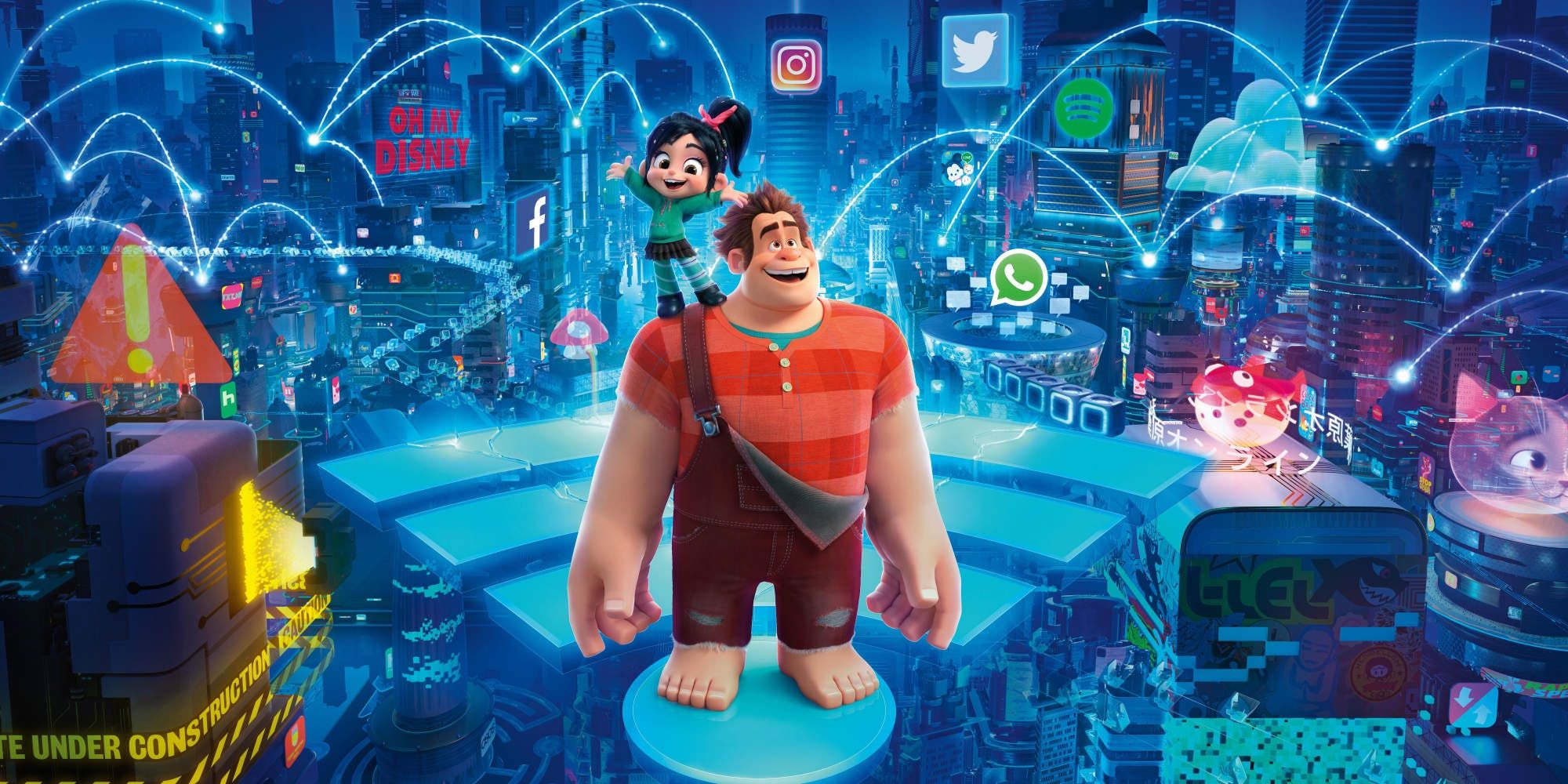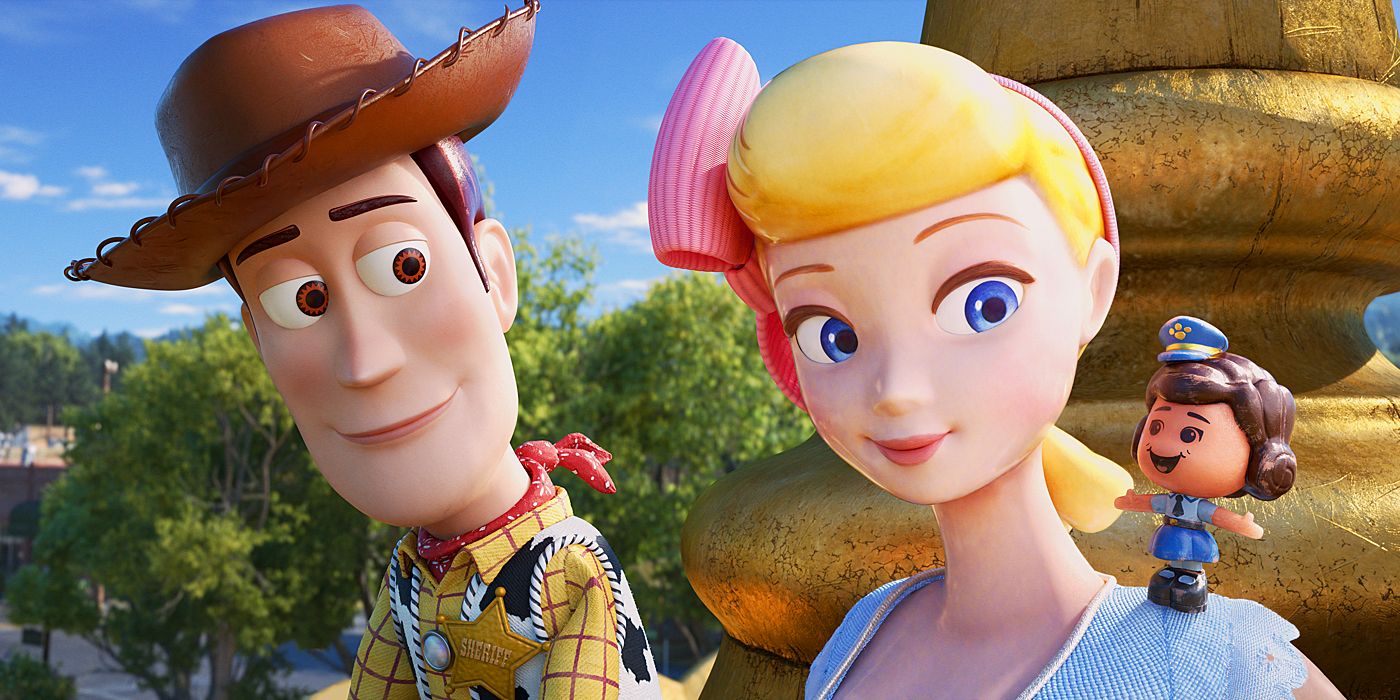WARNING: This following article contains spoilers for Toy Story 4 and Ralph Breaks the Internet.
Since Disney bought out Pixar and John Lasseter assumed control of both studios in 2006, the Disney and Pixar styles have been converging. By 2012, Pixar had essentially made a Disney movie with Brave and Disney had essentially made a Pixar movie with Wreck-It Ralph. Following John Lasseter's #MeToo-related resignation in 2017, the two animation studios now have different bosses (Pete Docter at Pixar, Jennifer Lee at Disney), but you can still see parallels in the sensibilities of their latest releases.
Pixar's Toy Story 4 and Disney's Ralph Breaks the Internet both have more or less the same ending, the same unexpected message coming as a reversal of their predecessors. However, Toy Story 4 pulls off this twist much more successfully than Ralph Breaks the Internet did.
The first three Toy Story films and the first Wreck-It Ralph are stories about finding value and contentment in upholding the responsibilities of your station. Nothing is more important for Toy Story's Sherriff Woody than being there for his kid, which he proves by resisting the temptation of museum immortality in Toy Story 2. Ralph wants to leave his villain job, but when he escapes his arcade cabinet, everything goes wrong and he's forced to accept his predestined fate.
In the latest installments of both franchises, this "know your place" mentality is thrown on its head. Ralph Breaks the Internet finds Vanellope making the choice to leave her arcade cabinet permanently and stay in her new home in the internet game Slaughter Race, with Ralph ultimately having to let his best friend go. In Toy Story 4, Woody chooses to become a "lost toy," leaving both his owner and his old friends to start a new life with Bo Peep helping other toys at a carnival.
Despite both sequels having such similar narrative arcs and messages, the gap between the two in quality is immense. Toy Story 4 is a pure delight, a worthy successor to the most successful cartoon trilogy of all time. Ralph Breaks the Internet, on the other hand, is a seriously flawed and ultimately disappointing follow-up to Wreck-It Ralph. What went right with Toy Story 4, and what went wrong with Ralph Breaks the Internet?
The simplest explanation is that Toy Story 4 is a movie that understands its characters, with all its messages emerging organically from their development, whereas Ralph 2 prioritizes delivering its message over being true to its characters.
The biggest problem with Ralph 2 is that it turns Ralph into a complete idiot for the sake of advancing the plot. All of the character development from the first film was ignored. The idea of Ralph's inability to accept his friend leaving him turning him towards becoming possessive and toxic is one that makes sense as a commentary on internet radicalization. However, because the film doesn't actually illustrate the influences that lead otherwise intelligent men down such dark paths online, Ralph's sudden jump towards breaking the internet makes him come off as uncharacteristically stupid, without a hint of the self-reflection that was essential to his first movie characterization.
When Ralph eventually confronts the manifestation of his worst impulses and accepts Vanellope's choice, it's played as the sort of moving tear-jerker scene the Toy Story films have become known for. Yet while the ideas behind the ending of Ralph Breaks the Internet hit the right bittersweet notes, the plot leading up to them is so substandard that it's hard to get as invested.
Toy Story 4, in contrast, nails all of its characterizations. The characters we've known and loved for three movies have evolved in ways both small and large (Bo Beep's gone through the biggest transformation when we meet up with her in the present), but all of these changes are believably motivated.
Woody is confronted with situations similar to those he's faced before. In the first movie, he's losing his popularity to other toys, and in the second, he's faced with potential futures that don't involve returning to his owner. That the outcome ends up so different from the previous movies is the result of both the specifics of the situation and how Woody's personal philosophy has developed.
In the first Toy Story, Woody's concerns about being loved by Andy were selfish. By Toy Story 4, Woody still has self-interest at play in wanting to be played with by Bonnie, but he's also genuinely concerned about helping her get through tough times. The nobility and purpose for toys by being loved by a kid were central to the themes of Toy Story 2 and 3. That Woody is willing to choose a different path in 4 is due to a few different realizations: That Bonnie is never going to love him the way Andy did, and that as a "lost toy" he can actually find ways to help other toys achieve the purpose they once had.
The conflict in Toy Story 4 is mainly internal, and the internal dilemmas are compelling enough that the film doesn't need to contrive reasons for Woody to fight with his friends the way Ralph and Vanelope do in Ralph Breaks the Internet. Woody and Buzz saying goodbye to each other is impactful without needing to force conflict between the two of them over the decision.
There are other aspects of Toy Story 4 that far exceed Ralph Breaks the Internet as well. The new characters introduced in Toy Story 4 are far more compelling and funny than the denizens of Ralph's internet. Both films push the questionable logic of their worlds to the limit, but whereas Toy Story 4 has a knowing sense of humor about its absurdity and just enough emotional logic to suspend disbelief, the video game-internet-real world interactions in Ralph Breaks the Internet just play as nonsense.
The concept of Wreck-It Ralph always invited Toy Story comparisons, so it's perhaps not too surprising that the latest sequels in both franchises have such similarities. It's the differences between them, however, that explain why Toy Story 4 is destined to be yet another Pixar classic while the world has already mostly forgotten about Ralph Breaks the Internet.
Directed by Josh Cooley, Toy Story 4 stars Tom Hanks, Tim Allen, Joan Cusack, Keanu Reeves, Annie Potts, Don Rickles, Estelle Harris, Wallace Shawn, John Ratzenberger, Jeff Pidgeon, Blake Clark, Keegan-Michael Key, Jordan Peele and Tony Hale.




